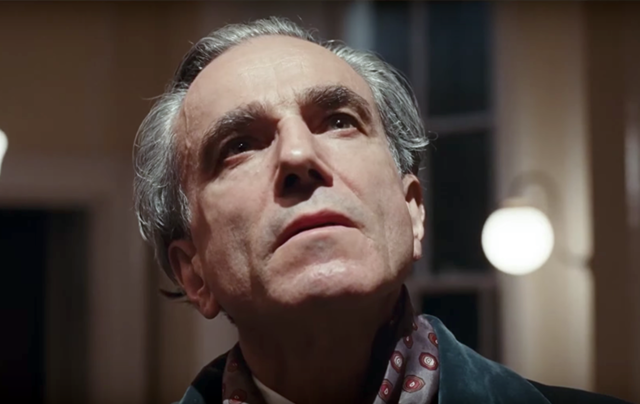Daniel Day-Lewis told W magazine last week that he won’t lay eyes on what he says will be his final film, Phantom Thread, which opens on Christmas Day. The triple Oscar winner announced an end to his storied acting career earlier this year, and it seems he’s still struggling with his decision.
"Before making the film, I didn’t know I was going to stop acting. I do know that [writer/director Paul Thomas Anderson] Paul and I laughed a lot before we made the movie. And then we stopped laughing because we were both overwhelmed by a sense of sadness. That took us by surprise: We didn’t realize what we had given birth to. It was hard to live with. And still is,” DDL, only 60, says.
“I dread to use the overused word ‘artist,’ but there’s something of the responsibility of the artist that hung over me. I need to believe in the value of what I’m doing. The work can seem vital. Irresistible, even. And if an audience believes it, that should be good enough for me. But, lately, it isn’t.”
As he always does, Day-Lewis totally immersed himself in his chosen role. For Phantom Thread that was Reynolds Woodcock, an obsessive fifties-era London-based couturier who designs clothing for high society matrons and meets a muse who has a profound, unexpected impact on his life.
Read more: Kevin Spacey’s sexually inappropriate behavior halted “Usual Suspects” filming says Gabriel Byrne
To prepare for the role DDL learned to sew and actually recreated a rare dress by the haute couture design house Balenciaga which is housed in Paris. He used his wife, filmmaker Rebecca Miller, as his model. “Rebecca was very patient,” he said.
The British-Irish citizen who maintains a home in Ireland dismissed rumors that he might take up design full-time. But he firm that he’s done with acting.
“I knew it was uncharacteristic to put out a statement,” he said. “But I did want to draw a line. I didn’t want to get sucked back into another project. All my life, I’ve mouthed off about how I should stop acting, and I don’t know why it was different this time, but the impulse to quit took root in me, and that became a compulsion. It was something I had to do.
“I have great sadness,” he added. “And that’s the right way to feel.”




Comments